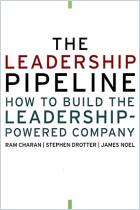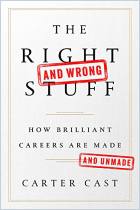Melden Sie sich bei getAbstract an, um die Zusammenfassung zu erhalten.

Melden Sie sich bei getAbstract an, um die Zusammenfassung zu erhalten.
Neil Irwin
How to Become a C.E.O.?
The Quickest Path Is a Winding One
The New York Times, 2016
Was ist drin?
To become an executive today, you have to be an expert in more than just one area of business.
Recommendation
For aspiring senior executives, the path up the corporate ladder isn’t as linear as it once was. Recent research shows that would-be top directors who camp out in just one functional area reduce their competitive edge, while those who branch into multiple specialties increase their odds of reaching the top. Journalist Neil Irwin explores the findings from new research into the ways senior executives earn their positions. getAbstract recommends this article to any worker aspiring to reach the upper rungs, especially those with his or her eye on the CEO’s seat.
Summary
About the Author
Neil Irwin is a senior economics correspondent at The New York Times and author of the best-selling The Alchemists: Three Central Bankers and a World on Fire.
























Comment on this summary